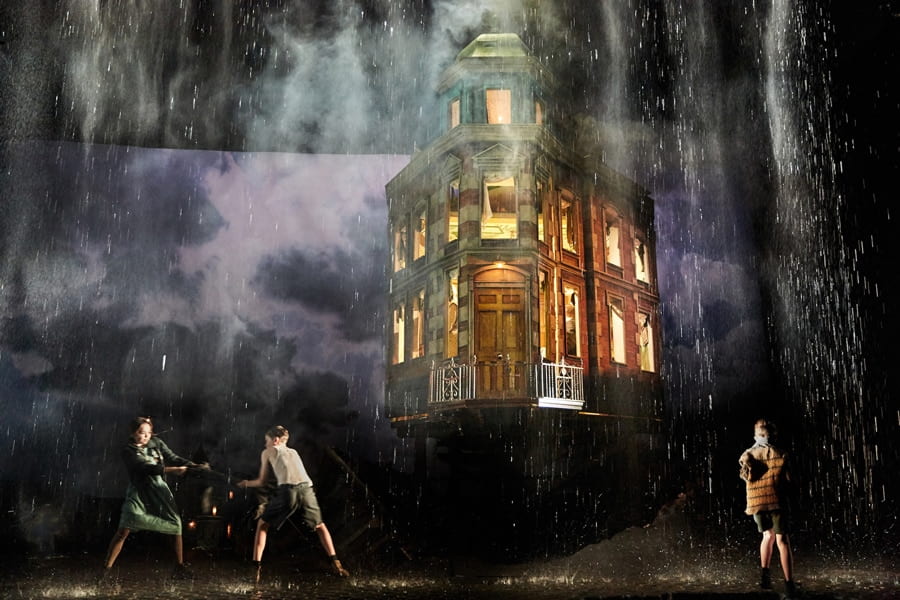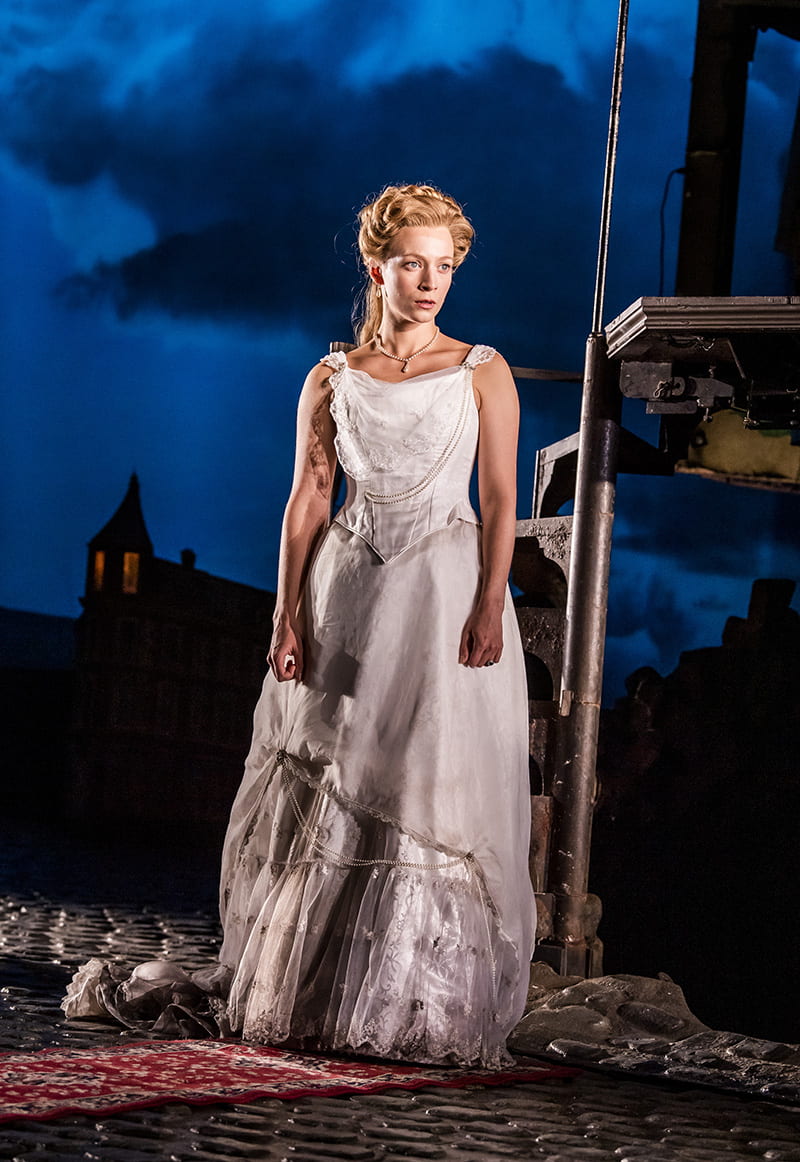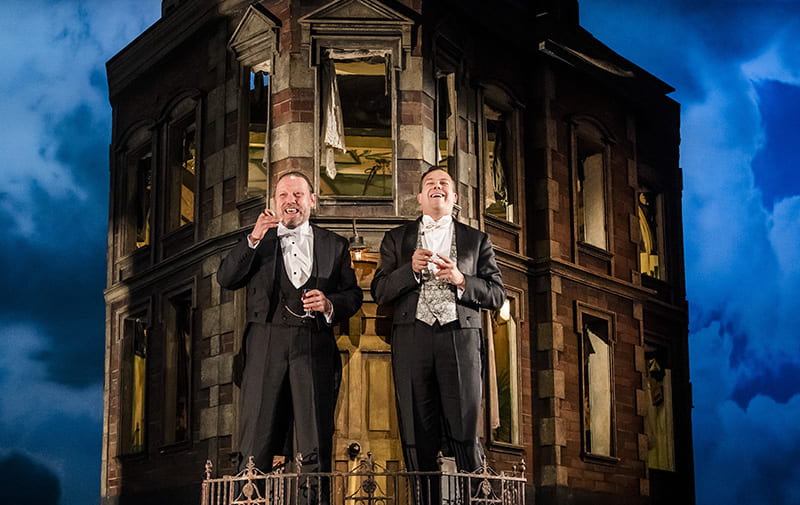First performed in Moscow in 1945, J B Priestly’s ‘An Inspector Calls’ is considered by many to be one of the greatest plays ever written. It tells the thrilling tale of the Birlings, an affluent family gathered together for a night of celebration when their peace is disturbed by the arrival of a mysterious inspector and his uncanny ability to pick their lives apart over the suicide of a local girl.
Re-imagined by director Stephen Daldry in 1992, the National Theatre production of ‘An Inspector Calls’ has gone from strength to strength, with many successful runs in London and a long running tour. With an incredible set design by Ian MacNeil, this production has become a landmark in it’s own right. The first reveal of the Birling home, teetering on stilts over dark cobbles and broken ground, is one of those great theatrical moments which makes you sit back and think wow.

The talented cast bring Priestly’s complex and well developed characters to life in a believable and natural manner, with a realistic family dynamic. As the story unfurls and the lives of Arthur, Sybil, Sheila and Eric Birling and Gerald Croft unravel, these are not characters that are easy to like as such but somehow you can still relate to parts of them. We can see selfishness, passion, anger, loyalty, determination and internal struggles along with the fear and pain of having to come face to face with everything that one hates about themselves.
As Arthur Birling, Jeffrey Harmer showcases the character’s burning determination to hold everything together and resolve the situation. Christine Kavanagh makes an impression as Sybil Birling, resolute in her belief that she is fine upstanding member of society. Alasdair Buchan shows both a flair for drama and comedy as Gerald Croft, Sheila’s fiancee, as he tries to work out the inspector and keep Sheila on his side of the argument.

It is Chloe Orrock’s performance as Sheila Birling that really strikes a chord as you see real change, from a spoilt girl to a responsible adult who truly realises that her behaviour and place in society has an impact on others. I must also praise Ryan Saunders performance as Eric Birling, a challenging role as the character rides an emotional roller coaster throughout. As the play reaches it’s climax, you really feel for Eric and you can feel his pain.

Liam Brennan takes on the role of Inspector Goole here and gives a commanding performance from start to end. He has a wonderful stage presence and the ability to switch between seriousness and comedy at the drop of a hat. He brings a somewhat hyperactive energy to the role, taking excitement from the drama and bossing the family around to the delight of the audience.
Stephen Warbeck’s powerful use of music, paired with Ian MacNeil’s set creates a sense of foreboding, matching the story perfectly, as the music swells with each revelation and the Birling family find themselves brought out of their home just as their pasts are brought out into the open. The family home appears almost dollhouse like, small yet safe, the family’s comfort zone, you could say. As the house opens up and the family are pulled from it, you feel almost as fi the out of proportion small house represents the safety and security the family had in the life they had created for themselves and as they are brought out of that safety into the open, they are forced to recognise just how bit an impact they can have on members of a wider society.

To conclude, ‘An Inspector Calls’, despite being set in 1912, still speaks to a modern audience. After all, no matter the time period, everyone fees that they have a place in society and everyone has things in their past that they feel ashamed of, and this story brings all of that to the forefront. This one act play moves along at an engaging pace with no breaks in the action, keeping you gripped on the story through to the end with a number of unexpected twists and turns thrown in for good measure.

